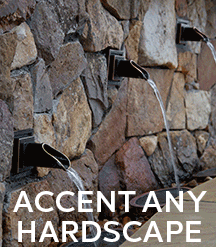Articles Written by Charles Vander Kooi
3 good things in a recession
By Charles Vander KooiEvery recession results in what I call the good, the bad and the ugly. The bad is that we're in one and that we have been in one for 4 years. The ugly is that the government is trying to fix it. But there are 3 very good things that can happen in a recession. As some of our politicians have said, we shouldn't let a good recession go to waste.
So, here are the 3 good things about a recession.
1. We take a bath
The first good thing about a recession is that gives the industry a bath, and certainly our industry needed a bath to washout the poorly run businesses.In the boom times, there's so much work out there that a bunch of start-up businesses emerge to pick up the slack. Many of our better employees see this as a good time to go into business for themselves, so they do.
I often equate the economy to a pig trough. In a good economy the pig trough is full of food, and there's a bunch of big fat pigs trying to eat the food. But they can't eat it fast enough and they certainly can't eat it all. And whenever there's a vacuum, that vacuum is going to be filled.
So all of a sudden a bunch of new little piglets come up to the trough like all these people who decide it's a good time to go into business. However, those startup contractors don't educate themselves on how to run a contracting business, one of the most difficult businesses there is to run and manage. They may know how to install jobs, but they don't know how to manage it.
So when a recession hits and there is less food in the trough, those little piglets can't compete and they go away. Every industry needs that kind of bath from time to time.
No bath from the past
So, why didn't the industry get much of a bath in the past? In past recessions when the prices tanked, I would hear many contractors complain that their competitors were pricing below cost. They were certain that those competitors were going to go broke at those numbers. But, they never did.The reason they didn't was that those past recessions only lasted 18 months, maybe 2 years. They were kind of just a blip on the screen, and before you knew it the economic engine was back running at full bore. Those recessions also didn't impact the industry directly like this one that has to do with foreclosures, and the real estate market and the sub-prime mortgages.
Consequently, this one has run so deep, so long, so wide that we are finally seeing some competitors disappear.
Stagnant market = More work?
Let me tell a story to illustrate a point. A few months back I was talking to the bonding agent of one of my contractor clients. The bonding agent insures the contractor's performance and payment bonds along with his bid bonds. More and more general contractors and government agencies require bonded contractors.I asked the bonding agent how the construction economy was in my client's area. How did it look for 2012? He said he saw no real change in the market from 2011 because architects and engineers told him they're not seeing any change in the amount of projects being designed. This is the best indicator of future work for contractors.
But then he said, "However, it's going to get better for your client." I said, "Why is that?" He said, "In the past 6 months, my bonding firm dropped 45% of our contractor client base. They have either quit, or are in enough trouble that we will not bond them on jobs. Consequently, there's going to be about the same amount of work, but fewer people bidding the work."
So, what we've always wished for during a time like this is finally coming around. A lot of the little piglets are disappearing as competitors with bad pricing practices are going under, and things should be getting better for many companies with good business practices. That is exactly what I see happening over the next couple of years.
2. You can upgrade staff
2nd, it is time for contractors to upgrade their staff. There is a question I've heard for as long as I've been around the construction industry: Should you go out and get the work first, and then go out and find people to do the work? Or, should you get the right people in place first, and then go out and get the work?The answer is easy: You do the most difficult thing first! But, what is most difficult depends on the economy at the time.
During boom times getting work was easy, but getting the people to do the work is hard. So in a good economy, you hire people first because it will be relatively easy to find work for them to do.
But during a recession, getting work is difficult. Finding people is easy because there are lots of people looking for work. So in a recession like this you go out and get the work first. Once you secure the work you should be able to staff up fairly quickly.
Lose the hostage mentality
Another thing: Through the many boom years it was so hard to find people that we'd do anything to keep the people we had. An employee would come in and say, "Company X has offered to pay my full health insurance, give me a company truck and pay me $2 more an hour." And our answer was, "We'll match all that, but pay you $3 more an hour. Just please, please, please don't leave me!"Contractors found themselves held hostage by their employees. But with the recession came a jail break. Now it's easier to find good people, the door has opened and you're back in the driver's seat. So now is the time to take all your C and D players and replace them with A and B players.
It's time to let go of the hostage mentality and use this opportunity to upgrade your current staff. But don't hire additional staff without first having work for them to do.
3. You get lean & mean
The third good thing to come from a recession is that it pushes contractors to operate lean and mean as they should be doing anyway. During the good times, many contractors are out spending money as fast as they're making it, and they're thinking it's never going to end. They build up a heavy overhead. They hire people to do everything, so all they have to do is stop by their office once in a while. They're not watching job costing like they should. They're not buying material at the best prices like they could. And they're paying people more money than they're worth.The recession gives you the "opportunity" to tighten up the ship and do what you should have been doing all along. And that's watching your systems, making sure there's no waste, making sure you're doing things in the best way and in the fastest way possible, and not squandering any money. And that's a good thing.
This is the beginning of a series of articles that we'll include in the next several issues of Hardscape Magazine. The articles come from a new seminar I've been giving called "Managing your company in a tight economy." I want to share with you more strategies you can use to be a survivor of this recession including some of the creative things that our contractor clients have been doing to weather this recession.
Since 1980, Vander Kooi & Associates has been helping business owners add more to the bottom line of their company's financial performance. We would be proud to help you with budgeting, estimating, high-performance management, marketing, sales, productivity and field training. Visit vanderkooi.com or call (303) 697-6467.















